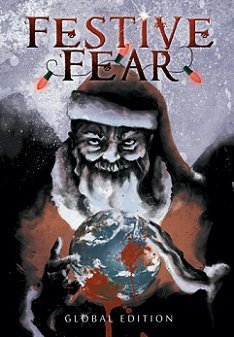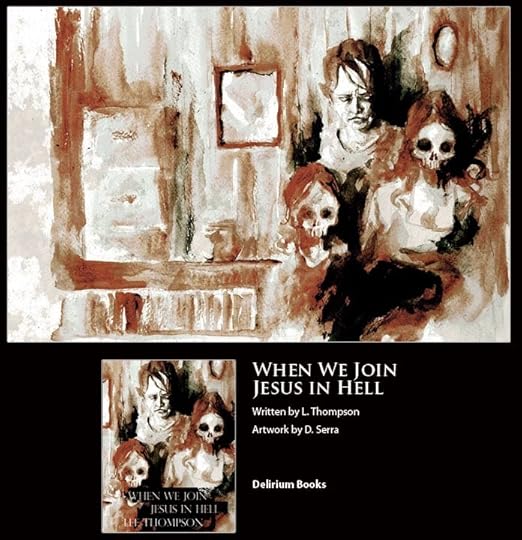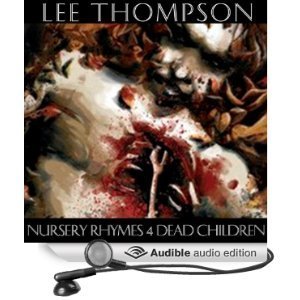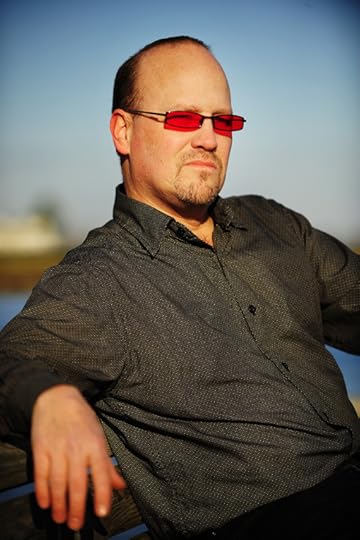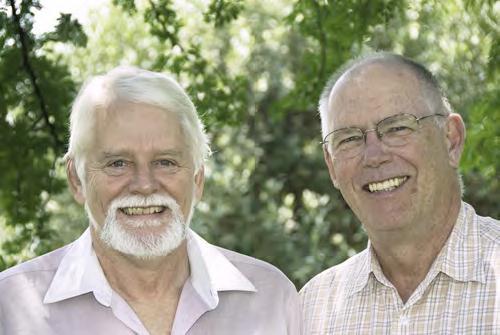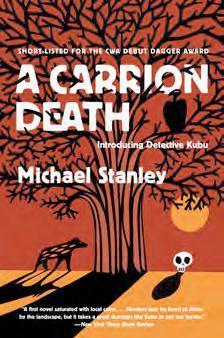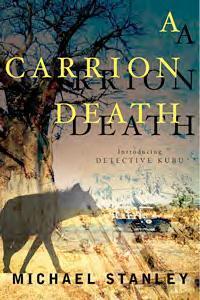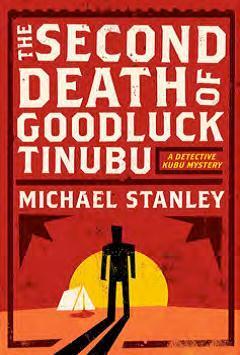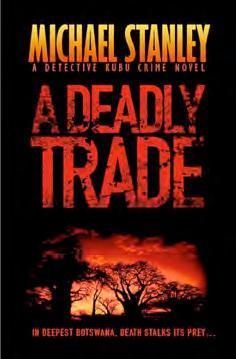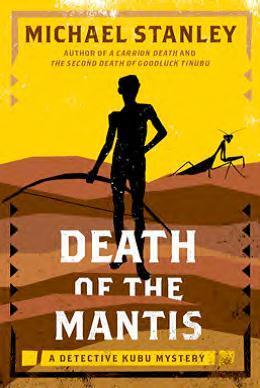Lee Thompson's Blog, page 12
December 21, 2012
Free Christmas Story: A Bell Ringing in the Empty Sky
This is one of the first short stories I sold way back in 2010. I was very proud of it at the time because I love Tasmaniac Publications and I had words alongside some awesome writers like Tom Piccirilli, Paul Kane, Tim Curran, and Kealan Patrick Burke. Good company to be in. Merry Christmas!
A Bell Ringing in the Empty Sky
By
Lee Thompson
Ben hid behind his bedroom door, peering through the crack, studying the hallway. Any minute now his mother would step from her room, her shoulders slumped beneath the weight of the bags she would carry. He loved the Christmas presents his parents bought him. Most of the kids in Junior High didn’t hide their jealousy—because his dad flew for American Airlines and raked in the dough and spent it on Ben in effort to make up for his absence, while their fathers were home but bought them little because they worked as auto mechanics, and construction workers, and some of them not at all.
They thought it meant his dad loved him more, buying him everything from new games for his Playstation 3, to the go-cart he’d gotten last year, hidden beneath all of the other presents. But he’d trade them, all of the gifts, for one Christmas morning with his father.
His mother opened her bedroom door and walked out in her pajamas, struggling with the fabric bags full of presents as they banged the walls and tripped her up. She cursed softly. In the dim light spilling from her bedroom, her eyes looked shiny, as if she’d been crying. Ben didn’t think anyone should have to cry on Christmas Eve. He wanted to open the door and run to her and take one of the bags so that she didn’t have to carry them both, but he couldn’t because she’d put him in bed three hours ago and he was supposed to be sleeping.
Wind battered the windows, and snow swirled, brushing and falling away from the panes. Restless, wanting it all to be over, be the 26th when his father would come home, he walked across the room to the glass and tried to peer through the white haze, praying, wishing, Please God. Bring my dad back. Cancel the flight. Bring him down from the sky so Mom won’t have to cry anymore and he can see me open all the things he bought me.
The storm built. It was a bad night for anyone to be out, and he thought his dad had to be pretty brave to fly in stuff like that. A little pride swelled in his chest, even though he missed him, and told himself that he hated his dad for putting other people’s needs before their own. His mom always joked that he did it for the young girls who helped the passengers, but Ben thought she was probably just jealous that she didn’t have an exciting job too.
He shifted his feet. Slowly, a noise filled his ears. He concentrated, focusing with all his might until he realized what it was—a bell ringing dully in the empty sky—and it was getting louder. He swallowed and his forehead stitched up so tight it hurt. The wind threw snow against the glass in an angry rush, as if God were sick of people always asking things of Him. A bell rang again and the wind stilled but the snow fell faster, heavier, coating everything. The ringing faded. Ben’s heart hammered and his ribcage hurt. Across the house, his mother dropped the bags and cried out.
He thought, Dad? And ran to the door and down the hall, unable to wipe the smile from his face, thinking, It worked! God listened! Though he wasn’t sure God did it, or if he’d just wanted it so much—mind over matter or something—and he made it happen all on his own. Either way, he didn’t care. It was the result that mattered. He rushed into the dining room and stared in toward the tree. Its dancing lights painted his mother in pulsing colors. She stood there, gaze locked on the Lazy Boy, the presents spilled around her feet, one bag’s handle still looped around her fingers.
From where he stood next to the kitchen table, he saw the top of a knee, a hand gripping the chair’s arm, the gold buttons on the cuff of his dad’s jacket reflecting the blinking lights on the tree. He walked in by his mom and stared at his dad, taking in a quick breath at the sight of his dad’s hair swirled like a corkscrew pointing at the ceiling, his cheeks hollow and too white. His mother raised her hand toward him but stopped herself, unable to touch him. Ben cleared his throat and his mother looked up and opened her mouth, her hands clinging to the bottom edge of her pajama top. She made several weird clicking sounds before she found her voice. Her face went from confused, to angry, back to confused again. She looked younger when she was trying to mull things over, like the little sister that Ben had always wished he’d had; someone to play with and protect.
She blinked twice, and met his gaze. “I thought he was working. He told me he wouldn’t be here.” She looked back to her husband. “I never even heard him come in.”
Ben stammered, “Maybe the flight was cancelled because of the snow, or maybe he let someone else take his place so he could be home with us.”
“No.” She shook her head. “He would have told me he’d be home.”
“Who cares?” Ben said, inching his way into the living room. “He’s here, that’s all that matters.”
“Who cares?” His mother looked at the mess around her slippers. “If I’d known I would have waited to bring everything down. He could have done it with me.” She bit her lip, tears reflecting the light from the tree as they gathered on her eyelashes. Her features hardened. She stood straighter and kicked a blue-foiled box aside. “He probably never even went to work. He was probably at some filthy motel with some trashy stewardess.” Trembling, she wiped at her nose, doing her best to regain her composure. Ben waited, directing his gaze to the floor but having a hard time because he wanted to look at his dad and make sure he hadn’t vanished, make sure he was still breathing.
His mother said in a thick voice, “Help me pick these up and set them under the tree.”
“I thought you wanted Dad to help you.”
“He’s too tired to care and I’m too upset to wake him.”
Ben wanted to say: Don’t you think you’re overreacting? Dad wouldn’t cheat on you. He hasn’t been at a motel with someone. I brought him home. Be happy. We’re all together for Christmas now. But he said nothing because he knew her attitude would change for the better when his dad woke and everyone could have some laughs and cocoa. He helped her place the gifts under the tree, thinking, They really outdid themselves this year. No wonder all the kids at school either want to be my best friend and play with all my stuff, or hate my guts.
His mother kept glancing over her shoulder as they knelt next to the tree, the smell of pine strong this close to the branches; Ben a little worried now too, but for a different reason. When he’d wished his father home, he thought he’d show up awake and happy, come running to his room and pick him up in those strong arms and spin him around, crying, “Merry X-mas” because he knew that Ben hated people calling it that, but doing it anyway, just to tease him so they could laugh about it later. He wondered how long it would be before the sleeping ended and the fun began. Hopefully before winter passed and the trees budded and the birds built new nests and another year passed them by, everyone living but none of them living together.
They finished piling the presents and stood, his mother trembling again, running her hands down the front of her pajamas. “He never sleeps this soundly. The slightest noises always wake him up. Maybe he’s sick, maybe that’s why he’s home. Do you think I should call a doctor? Should we take him to the hospital? I don’t know if we can carry him to the car.” She looked out the picture window at the falling snow. “We’ll never be able to drive in that.”
“He can’t be sick,” Ben said. “He just can’t.” Saying it because he knew if something had happened to his dad, it was his fault. “He’s fine.”
“No, he’s not fine.” She moved over to the chair and leaned forward, her fingers brushing his cheek. “Kev? Honey?”
Ben waited, wishing his dad would open his eyes, a thought occurring to him for the first time—that he loved his father more than he ever could his mother, despite how much more time he had with her than he did with his father. He shook his head, ashamed of himself, wishing he could love them equally.
“Can you hear me? Wake up.” She shook his shoulders. “Wake up!”
Ben moved over to her side and pried his father’s hand free of the Lazy Boy’s arm. “Dad, wake up!” He pinched the skin near his father’s wrist, surprised by the weight and size of his closed fist. He pinched harder, as hard as he could. His father sucked in a quick breath, and his eyelids sprang open, his mouth wide and howling along with the wind pressing against the eaves. His head turned left and right, back and forth between them. The wind threw snow across the window. Ben let go and stepped back as his dad jumped from the chair, his eyes white as winter, as if being brought here through the sky and storm had presented a chance for the elements to work their way beneath his flesh.
Blood colored his face, and he almost looked alive. He clenched his hands, opened them, trying to breathe and move and only able to stand there. “How did I get here? What happened?” He hit his knee on the coffee table as he stumbled forward like someone had shoved him from behind. “What the hell is this? Huh? A bad dream? Tell me!” The thick vein on his neck looked like a cable beneath his skin. Ben took another step back, thinking, It wasn’t supposed to be like this. You’re supposed to be happy that you’re home.
Ben’s mom said, “What the hell is the matter with you? You come home without telling me? You fall asleep in your chair and wake up screaming? At us?”
“I’m dreaming,” he said, pacing, his fingers digging into his forehead like he was trying to get them into his brain and operate until he fixed whatever was wrong as he paled again.
Ben said, “You’re not dreaming. None of us are. We’re really together. On Christmas.”
His dad’s head snapped up. “I can’t be here. I was flying the plane and…” His face went stupid, confused. “And…”
The mad look in his eyes frightened Ben.
Ben’s mother said, “You’re out of your mind. I need a drink.”
His father laughed sickly and looked at the tree and presents. “This just can’t be.” He marched into the dining room and grabbed the cordless, holding it out like a foreign object, or something that might bite him. He stared at the keypad like he’d forgotten who he wanted to call. Ben thought, It’ll get better once the shock wears off.
His dad took a deep breath. “If I call them they’re going to ask how the hell I was on the 737 one minute and how I’m here the next. I should be over Los Angeles by now.” He shook his head again and dropped the phone by his thigh. When he looked up he met his wife’s eyes and Ben shifted his feet wishing he could read minds, wishing his dad’s color would return because he thought he might be dead and not even know it. “How am I supposed to explain this? I don’t even know what this is. Christ. I might be losing my mind.”
Ben laughed, not meaning to, hoping it was just the awkwardness of the situation as he pictured an insane pilot with a plane full of unsuspecting passengers. He wished, even if his dad was dead, or they were all crazy, that his old man could be happy, so they could all share it, be a family.
His dad glanced at his watch. “I have to land the jet in three minutes.”
Ben said, “Your co-pilot can land it.” His dad shook his head so violently that his face disintegrated—the flesh cracked and broke like an hourglass, skin and bone and brain all powder as it poured over his chest. Ben wiped his eyes and wished it away until his father was normal again, all of them so tired, the Christmas tree lights blinking, the world all white and windy.
His dad said, “He’s never landed in the snow, much less a blizzard. He’s going to be a nervous wreck.”
Ben’s mother crossed her arms over her chest and grunted. “Are you saying that you were flying five minutes ago? This is the dumbest excuse you ever gave for fucking those little skanks.” She had tears in her eyes again, like she’d had when she’d carried the presents out of their bedroom. His dad nodded dumbly, the look on his face saying—You’d believe that.
“You’re a sonofabitch.”
“Believe what you want. I was flying and then I was here. There is no one else, this isn’t some stupid story to cover up infidelity.” But Ben saw the guilt on his face, that it wasn’t all in his mom’s mind, some low self-esteem bullshit, but he’d done it to her, to them, taken his time and love and given his gifts, the real ones that you couldn’t buy, and handed them over to someone else. Some stranger. Ben curled his fingers into his palms, the back of his neck hot, waiting to hear a bell ringing in the sky.
His mom said, “You had to get here somehow.”
“No shit? You think I need you to tell me that?”
Ben said, “Can we go with you?”
His dad turned his head, brow all crinkled up like old paper. “Where?” He looked at Ben’s mom. “What is this, a joke? Mass suggestion? Where am I really?”
Ben wished he could read his father’s thoughts, because the look on his face, those eyes darting about, unable to settle on anything for more than a second, made Ben believe that his dad wanted nothing more than to be on the job, or with one of his lovers at some sleazy motel room, sharing their filth in some bed with dirty sheets. And he thought that was the way life probably went, because adults didn’t believe anymore—not in themselves, and not in each other. Everyone was selfish. Ben could see it, even inside himself. And he thought it was pretty horrible, what he’d done, bringing his father home when other people needed him, his dad not wanting to be at home anyway.
Ben said, “I’ll fix it. We’ll all go.”
He bowed his head and clenched his eyelids shut.
He prayed, Please God. Put us on the plane. Let me watch him land it and all of us can ride home together then, and everything will be okay.
His father grabbed his shoulder, and Ben’s eyelids sprang open as he tried to jerk away, but his dad’s fingers felt like meat hooks breaking his flesh. They both screamed as Ben’s mother shimmered, paled, and faded, her hands running over her pajamas. A gust of hot air slammed their house. The snow melted beneath the heat and drizzled down the glass like rain, or blood, and Ben thought, The sky is bleeding. My wishes made it bleed. But his heart hammered so hard and his dad was hurting him as his mother’s form evaporated.
The wind stilled like a soft kiss against the place they called home despite the good times, in the face of the bad, and a bell rang in the empty sky. Ben looked up, until he felt something jerk him from inside, as if pulling his soul from his body, rending it, tearing it through the ceiling and into the clouds, a cold overpowering him and chilling his core, eyes watering, but his parents right there beside him, both upside down like they were dead and floating soundlessly in a vast body of black water. The wind roared in his ears and something popped inside his head. He saw his father with his head bowed to his left and his mother on the floor of the plane to his right, her eyes open but blank, and he heard people screaming inside their cramped seats, and saw them ripping at each other through the open cockpit door as if they could hold onto the lives they once had if they only tightened their grip enough. The co-pilot slumped behind the steering gear, metal digging into his forehead.
Ben shivered, feeling weaker than he’d ever imagined possible. He took his parents’ hands and squeezed, wanting them to wake up, wishing they could all forgive each other and love like they should. He prayed, “Please God, please,” faster and faster, waiting for the bell to ring, as the sky rushed against the windshield, and they plummeted through an endless white expanse.
December 20, 2012
January’s Guest Author and an Upcoming Interview
I’ll be the guest author for the month of January at the Horror Aficionado’s group on Goodreads! They’ll be reading and discussing my heartbreaking novella WHEN WE JOIN JESUS IN HELL. I’m very excited to participate and look forward to answering a bunch of questions. Thanks to Jason and Tressa for the invite! Come join us!
This novella has been turning heads. And it should. It’s wickedly subtle (not).
Grab a copy for Christmas and join the party!
If we’re not friends on Goodreads, send me an invite, punk.
And to keep up with all the whirlwind that is my writing career sign up for my newsletter off to the right there.
Oh, I’ll also have a deliciously decadent interview in Shock Totem #6 as well! I love that crew! Make sure you check it out.
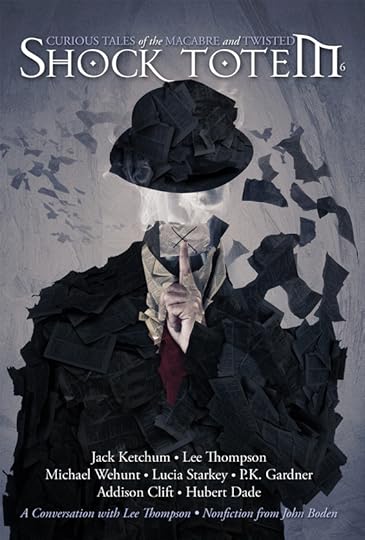
Not the Final Cover
Thanks for everybody’s support! Merry Christmas or whatever it is your celebrating!
December 17, 2012
My Favorite Reads in 2012
Here is the best of the best of what I’ve read during 2012. Thanks to the friends who recommended or sent me some of this stuff! Read ‘em!
Novels
The Wreckage of Agathon by John Gardner
The Given Day by Dennis Lehane
Live by Night by Dennis Lehane
The Last Kind Words by Tom Piccirilli
The Burning Soul by John Connolly
The Neon Rain by James Lee Burke
Heaven’s Prisoners by James Lee Burke
Light in August by William Faulkner
As I Lay Dying by William Faulkner
The Great and Secret Show by Clive Barker
Heart of Darkness by Joseph Conrad
Death of the Mantis by Michael Stanley
So Cold the River by Michael Koryta
Novellas
Reign of Blood by Sandy DeLuca
Without Purpose Without Pity by Brian Hodge
The Rapist by Les Edgerton (forthcoming)
Collections
Beautiful Sorrows by Mercedes Yardley
Non-Fiction
Becoming Faulkner by Philip Weinstein
The Faulkner-Cowley Files: Letters & Memories 1944-1962
Writing 21st Century Fiction by Donald Maass
Books to Die For by John Connolly and Declan Burke
And for my 2012 Year in Review… Go here! It blew 2011 to bits.
December 9, 2012
2012 Year in Review
Well, it’s almost the end of 2012 and I’m having a hard time wrapping my head around what an incredible year it’s been. I may post this early. I will just post it today. Frees up the rest of my year to just read, write and spend time with family. I’ll add any big developments before New Years. There are probably a bunch of things I’m forgetting.
Last summer/fall, when my first novel (Nursery Rhymes 4 Dead Children) and first novella (Iron Butterflies Rust) came out, was a very surreal time. I had been striving to learn how to write well enough to sell my work for almost a decade. It was a relief to sign the contracts, to get my author copies in the mail and see them, to mail copies to my readers, to dedicate the books, to get some feedback and strive to learn more.
This year has been even better. I had a ton of work come out.
The novella DOWN HERE IN THE DARK in Hardcover and digital January.
The novel THE DAMPNESS OF MOURNING in Hardcover, Paperback and digital in February.
The online serial novel THE COLLECTED SONGS OF SONNELION (being published print/ebook in 2013).
The novella IMMERSION in Hardcover, Paperback and digital in May.
The novella WHEN WE JOIN JESUS IN HELL in Hardcover and digital in September.
The novella WITHIN THIS GARDEN WEEPING in digital in November.
But it’s funny how we can roar but still feel like we aren’t doing enough. When I was talking to my buddy Shaun Ryan, which I do so much you’d think we were married, I remembered that I always feared dying young. Like I’d never make it to forty. I think it’s been in my subconscious, spurring me on to write every story taking up space in my heart as quickly as I can before the worms claim me, before the cold, damp earth is my pillow. I do want to leave something behind whether I die prematurely or whether I live as long as Ray Bradbury did. Something of substance, that has meaning for somebody other than myself. I don’t think it’s a lofty goal. I think all true artists, whether they’re successful or not, want to connect with other people and share the beautiful things they’ve seen, and the tragic times that have scarred them, and how the world has shaped them. As writers, or painters, or musicians we hold a mirror up to ourselves and the time we live in, and it’s not easy. We’re a very quiet voice that can easily be lost in a lot of white noise. But I see how important it is to try and keep trying. I’ve gained some wonderful fans. They might not know it but they know me through my work.
My buddy Peter Schwotzer, of Literary Mayhem and Famous Monsters of Filmland, designed a fantastic website for the Division Mythos. Thanks so much, Peter!
Narrator Matthew Stevens recorded my first audio book NURSERY RHYMES 4 DEAD CHILDREN. We’ll also be working on the audio for the sequel THE DAMPNESS OF MOURNING after New Years.
I also had a local paper interview me, which was neat. Thanks to reporter Bill Petzold! That was a lot of fun and I found I enjoy being interviewed much more than I ever thought I would.
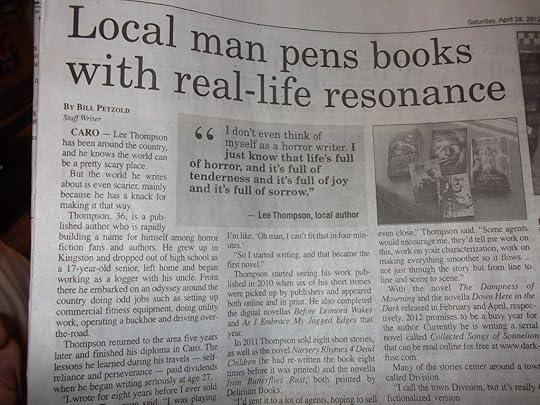
Some other highlights this year were meeting John Connolly, Lee Child, Michael Sears, Stanley Trollip, Les Edgerton, Michael Connelly, Michael Koryta and Sabrina Callahan at Bouchercon (The World Mystery Convention.) I don’t know that I would be the writer, or even person, I am, if not for the books my heroes have written.
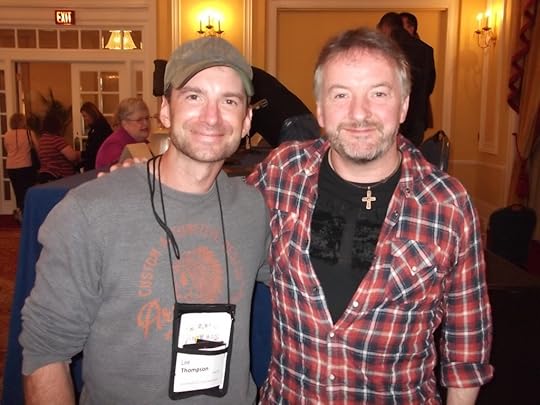
Me and my hero John Connolly
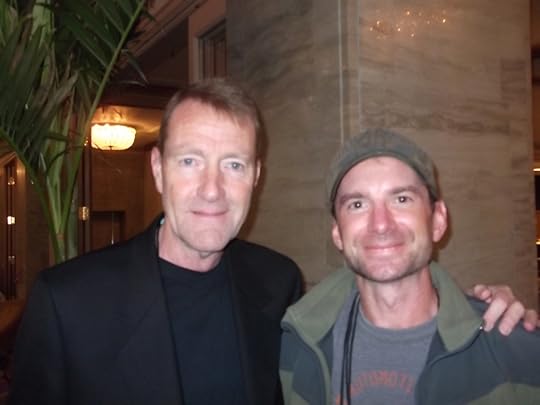
Me and the awesome Lee Child
Some of my heroes (Tom Piccirilli, Jack Ketchum, Brian Hodge, Robert Dunbar) read my work in 2012 and gave me blurbs. Having your heroes read something of yours is one of the greatest feelings there is. It’s fireworks in your head and a sudden jolt to your heart. It’s quite dreamy.
Reviews, which I never get very many of, have really taken off this year. Especially on Goodreads, which is one of my favorite sites. I get to talk to fans on there, too, which has been wonderful. And one of the groups (Horror Aficionados) has invited me to be the guest author for January 2013. They’ll be reading my brutal novella WHEN WE JOIN JESUS IN HELL and we’ll all discuss it. Very neat, yeah? Thanks to Jason and Tressa for the opportunity!
Sales grow as my audience grows. Thanks so much to everybody who has been buying the work and spreading the word about it! Word of mouth is vital. It helps me when I feel like I can’t write worth shit and then I find a stranger who enjoyed something I wrote, which leads to me finding my balance again. To remember that, yes, I’m writing for me, but I’m also writing to connect with other people. It’s weird, but it’s good.
New novels… I wrote three novels this year (The Collected Songs of Sonnelion, The Lesser People, and The Wolverine) and got halfway through a fourth (Gossamer). I have ideas for the next ten books that will range between 70-90,000 words. All I have to do is write them. Easy. My goal is to write four novels a year. I tell myself to take it easy, don’t work so much, but it’s part of my nature. I am an obsessive and the work gives me purpose that life would be too depressing without sometimes.
I signed a three-book deal with Darkfuse/Delirium Books in December. I’m very excited about it since Shane Staley has been awesome to work with and he publishes what he believes in. I’m writing and turning in a standalone novel every March, which works out great too because I have a ton of novel ideas and nothing for novellas or short stories lately.
Since I am quite prolific when it comes to novels, and I write more than just Dark Fantasy, I’ve decided to use several pseudonyms. I’ll keep the Dark Fantasy under my name. Have the name Thomas Morgan for Heartbreaking Coming of Age tales with a Historical Thriller slant; James Logan for suspense fiction that is very tightly plotted but has more hopeful endings than all my other work; Julian Vaughn for novels that are more big-concept with a lot of heart/more touching than horrific.
I had a writer I met at the World Mystery Convention (Les Edgerton) refer me to his agent for the pen-named work after he read WHEN WE JOIN JESUS IN HELL. That was really nice of him and whether it works out or not, him trying to help me counts for a lot. I’m really not worried about it since all of my worry is that the books are what I want them to be.
I got to interview a bunch of my favorite writers here. They are amazing.
I sold a couple of short stories. The River to my favorite mag Shock Totem. It will be in issue #6 along with Jack Ketchum and interview with me! And The Most Mysterious Silence sold to , owned by Jason V. Brock who made a great documentary about Charles Beaumont.

Not the Final Cover
Tuesday’s Training, my weekly writing advice essays for novice writers, has been a lot of fun. I know it’s helped a few people. That’s nice. I had help too: from things I’ve read, questions I asked answered by people far busier and far more experienced than I am, and help just through the encouragement that comes in something as simple as a smile.
Thanks to the publishers who have put their faith in me, the writers who encourage me, the pre-readers who help so much by offering feedback I can’t come up with on my own, the fans who help pay my bills and continue to come back for more of my work. 2013 is going to be an even more incredible year, which is really hard to fathom. But it will be. What a life. Thanks for helping me live my dream! Now go buy all my books for your friends for Christmas!
December 8, 2012
Guest Post from Toby Tate: Where Story Ideas Come From
All right. This is the first guest post I’ve had on my website but won’t be the last. Toby Tate is a new author with Darkfuse and seems to be a nice guy though he could really be a serial killer. If so, he’ll be the first serial killer on here. Enjoy!
“Where do you get your ideas?” is a question I’ve gotten more times than I can count, and one that I still never know how to answer. It’s a pretty common question for writers from readers—probably stemming from the fact that readers are simply curious, or because they might be aspiring writers themselves.
According to one of the most prolific authors on the planet, Stephen King, writers don’t ask other writers where their ideas come from, because “we know we don’t know.” That’s the truth. How can you know? Ideas come from, well…the ether. They just kind of appear and then you start writing them down as fast as you can before they disappear.
However, there are ways that we go about sparking the “muse,” so to speak. Authors like me can’t afford to sit around waiting for ideas to happen—we have deadlines to meet and bills to pay. In my case, I draw from experience, building on what I have done in the past and expanding it into new territory.
For example, my first novel, DIABLERO, was a supernatural thriller that took place mainly along the east coast of the U.S. and involved demonic possession and a lot of Lovecraftian type lore mixed with action and adventure. The main character was a newspaper reporter I had used in a short story, based on several people (including me). The “creature” was based on a legend, the Diablero, and a historical figure, Blackbeard the Pirate. Combine them and you have one really evil, kick-ass antagonist.
The idea first germinated when my wife and I visited a place in North Carolina called Ocracoke Island, where Blackbeard spent a lot of time. I really loved the idea of bringing him back to life in modern times, but I needed a way to do that other than just having him pop up out of nowhere. Hence, the Diablero, a Sonoran Indian legend about a demon that can change into other life forms. It was perfect. That book got a lot of great reviews and sold pretty well for a micro press.
LILITH, my latest book, was a little tougher. I knew I wanted to bring back the characters from my first novel, but I wanted the danger to be on a bigger scale, which would be hard to do. I also wanted to use another mythical creature, because I love “creature” stories and I love mythology. After doing some research, I discovered Lilith, who, according to legend, was Adam’s first wife, before Eve. She did not want to subjugate herself to a man and fled the garden to the Red Sea, where she began to procreate with demons, bringing forth a whole race of demonic children. One of these children is the forefather of the Lilith character in my story.
I get a lot of ideas while I’m walking, out on the boardwalk, far from civilization. I think exercise helps stimulate the brain and gets those creative juices flowing. I’ve fixed many a plot hole and come up with several story ideas while walking.
I also do a lot of reading, partly for enjoyment and partly to make sure I’m not copying what some other author has already done. Authors have to keep up with what’s going on in their genres in order to avoid replication. Of course, we all know there’s nothing new under the sun, but a fresh spin can always be put on an old story.
I suppose getting ideas or finding the muse works differently for each author, but as for where they come from exactly, well, I’ll just have to leave that question to the philosophers.
Bio
Toby Tate has been a writer since about the age of 12, when he first began writing short stories and publishing his own movie monster magazine. He was a newspaper reporter for five years and has been published in The Pedestal Magazine, Scary Monsters Magazine, Famous Monsters of Filmland and elsewhere. Lilith is his second novel. Check out his website at http://www.tobytatestories.com
December 7, 2012
Bunch of News
I’ve been invited by Jason and Tressa as January’s Featured Author for the Horror Aficionados Goodread’s group. The group will be reading and discussing my novella WHEN WE JOIN JESUS IN HELL. I’m very much looking forward to interacting with those passionate cats and answering questions anyone might have! Thanks to Jason and Tressa for the invite! If you’re on Goodreads join the group. I’m hardly ever there because I’m a workaholic but I’ll be checking in everyday in January!
Also saw the covers for Shock Totem #6, which is my favorite speculative magazine! I have a Division story (The River) in this one that takes place between NURSERY RHYMES 4 DEAD CHILDREN and THE DAMPNESS OF MOURNING. I like it and they bought it and you can read it! Everybody wins! Looks like a fun group of authors (plus one of my heroes, Jack Kethcum!) in this issue and I can’t wait to read it.
Ken Wood from Shock Totem will also be interviewing me, too, in issue #6! I’m very much looking forward to that because I’ve had so many exciting things happen, and have learned so much, in the past year.
And author Brett J. Talley recently read my novella WHEN WE JOIN JESUS IN HELL and made a post called “Does Good Horror Have to be Depressing?” Check it out.
I recently interviewed the fabulous duo Michael Sears and Stanley Trollip who write the Detective Kubu series. These are great books and you have three days to enter the giveaway for one of their novels! Enter here…
I signed a three-book deal with Darkfuse/Delirium Books. I’ll be handing in a standalone novel every March for the next three years. Fun! I’m working on the first now (Gossamer) and think it’s going to be a freaky novel. Gotta get back to work on it so I bid you adieu.
December 6, 2012
Signed a Three-Book Deal
Very excited to have signed a book deal with Darkfuse/Delirium Books! This publisher is nothing short of amazing. I’ll be writing and turning in a standalone novel every March for the next three years. Already working on the first one and it’s going to be creepy with a Clive Barker/Douglas Clegg feel to it! A big thanks to Shane and his team for all their faith! Big thanks to my pre-readers Shaun, Kevin, Chris and Charlene! Big thanks to everybody who has been buying the work, talking about it, reviewing it, etc. You’re all wonderful and help me tremendously.
You can check out my latest standalone WHEN WE JOIN JESUS IN HELL or dive into the massive Division Mythos with the first light read BEFORE LEONORA WAKES.
Also check out the Darkfuse Book Club. It’s fantastic!
Wishing everybody a happy holiday season!
December 4, 2012
Tuesday’s Training: Showing Vs. Telling?
First off, there is no competition between showing and telling so get that out of your head. Both are required, in their place, and work together to push the story toward the climax and payoff. I remember when I first joined some writers’ groups (Editred and then Zoetrope) and these are good places but nearly everybody would do critiques that can be summed up with “Show, don’t tell.” It’s very misleading, and it creates very thin work. After I began studying what my heroes did and I started learning how to use showing and telling together is when I also started selling work professionally. Coincidence? I don’t think so. It’s too easy to buy into rules like “Show, don’t tell!” because we desperately want to believe that if we follow the rules then somebody will buy our work. So we only show, we never open with weather, we always write in active voice, all that crazy shit. Anytime somebody gives you a bunch of absolutes–Always, Never, Everybody, etc.–run away. Or better yet, see what your heroes have done. Figure out why they did it and why it works.
Mastering when to show and when to tell (and how to blend them) are essential in drawing the reader into your story. There are dangers with both, even though writers have it pounded into their heads to “Show! Show! Show!” I say bullshit. Showing can be done very badly. Telling can be done and connect with readers quickly. Telling can prepare the reader and most of all make the characters and their actions understandable. You read Stephen King, Clive Barker, James Lee Burke, John Connolly, Lee Child, William Faulkner, Tom Piccirilli, Jack Ketchum, Dennis Lehane, etc., and pay attention to how often they’re ‘telling.’ It’s a lot. And there are reasons they tell when they do instead of showing. It’s an essential and basic part of great storytelling. Learn how and when it’s right for you personally to use both of them. Know why you’re showing, know why you’re telling. Just remember this, it’s a key: Whether showing or telling, it must be interesting, it must have movement and advance the story and/or show character.
Think about some of your all-time favorite books, the ones that inspire you to write something so moving and entertaining and grand. Study them. Seriously, take them apart and see why things work, where they work, how they work.
I’ll list what I believe to be some of the dangers and benefits of both showing and telling that novice writers face. I’ll give examples, too, so you can see what I mean, though some of this will be a bit tongue-in-cheek.
Dangers of Showing:
#1- The novice writer can easily write scenes that show nothing happening (no emotional turmoil, no physical challenge, no doubt or anticipation)
Example:
(Showing only)
Bright sunlight hurt her eyes as she carried flowers to her husband’s grave. She knelt and set them near the headstone. Tears wet her cheeks. She read his name and the date of his death.
(Showing and telling)
She dreaded taking flowers to his grave because it reminded her of all the times her husband had bought her roses. Bright sunlight hurt her eyes as she wandered from the car and over the lawn, the wrapping soft and crinkling beneath her fingers the way the letters he used to writer her had. She knelt and leaned them against the headstone. He’d been gone a year and she thought it was supposed to get easier. Tears wet her cheeks but she ignored them, reading his name, the date of his death–July 4th, 2011– and slowly, her neck and heart aching, she glanced at the empty plot next to his. They’d had no children, and she feared the day she’d take place next to him, for there would be no one to bring either of them anything.
#2- It’s easy for a novice to write scenes that play out well in their head, but do not play out the same way in the readers because the telling details aren’t there (how the character feels about the setting, themselves, those involved in the situation, etc.) I won’t take the time to write a whole scene showing examples because I have a novel to work on as soon as I finish this post.
#3- The novice writer can easily present back story through character dialogue, which comes across forced and unrealistic.
Example:
Derrick popped the top on his beer and placed his feet on the coffee table. “I’m really glad you’re finally divorcing that bitch. You put up with her cheating, lying, stealing ass for way too long. Like five years. You guys met in Vegas, so I guess it figures. Your parents were so mad that you married a stripper. A midget one at that! If they hadn’t disowned you you’d have been in their will though and shared the inheritance with your brother. Instead you’re drinking beer in the morning with a guy with little ambition or interest in anything other than internet porn. I’m starting my own company though and if I ever get rich, you’ll be rich too. The bitch and her boyfriend can suck it, then, right? Blah, blah, blah.”
It could go on and on, unfocused, instead of hitting the points that matter most for the story.
#4- A writer may show something graphic, overdone, overwrought, for showing’s sake and never follow up with how it affects the character emotionally and intellectually. If you have a chapter where something incredible or hardcore happens it’s good to follow it up with the character dealing with it, or trying not to deal with it. If the reader is invested in the character and story they care even more after seeing the protagonist struggle to restore balance.
#5- For a novice it’s easy to be vague when showing instead of being specific.
Look at Example #1.
Benefits of Showing:
#1- Creates suspense by visually showing your protagonist physically/emotionally in jeopardy.
#2- Transports the reader into the action via sensory details: Taste, Touch, Smell, Sight, Sound.
#3- It’s engaging if it’s raising the stakes and showing the character making a choice, followed by setbacks and more choices and higher stakes.
Dangers of Telling:
#1- Loss of suspense… It’s easy to fall into telling too much (though you can also show too much if it’s not something that moves the story and characters forward).
#2- Preaching your beliefs. You feel very strongly about something and you have your character preaching about it from beginning to end instead of growing. Easy mistake to make.
#3- It’s easy to summarize instead of letting important moments play out.
Benefits of Telling:
#1- Increases anticipation since telling serves setting things up well and the reader can visualize the showing portions to get to the payoff of each scene.
#2- Transports the reader into the story via descriptive details: setting, back story, secrets, etc.
#3- Works with showing to establish who your character is, how he feels about those around him, and why he makes the choices he makes.
#4- Helps you speed past the boring crap which improves pacing.
Don’t be afraid of telling or showing. Study the professionals and see how they apply each to draw you in and hold you to the end. For more of my thoughts on writing go here.
And watch this video of Lee Child at The Center for Fiction. Good stuff.
December 1, 2012
Interview and Giveaway: Michael Stanley (Michael Sears and Stanley Trollip)
Michael Stanley is the writing team of Michael Sears and Stanley Trollip. I met these wonderful and talented gents briefly at Bouchercon 2012 in Cleveland where they won the Barry Award for Best Paperback with the third novel in the Detective Kubu series.
Once I returned home I bought the first Detective Kubu novel—A CARRION DEATH—liking the sound of the premise, and a promising, unique story. I read it quickly, enjoying the characters, loving the setting and atmosphere, gripped by the intricate plot, and by the time I finished the first novel I was ready for more.
While they were working on this interview I read the second novel THE SECOND DEATH OF GOODLUCK TINUBU (2009), which was excellent! Today (yesterday now) I ordered the third in the series: DEATH OF THE MANTIS (2011). Really looking forward to diving into it as soon as it gets here! They write intricately, beautifully and savagely, and Kubu and the supporting cast are such wonderful characters.
A big thanks to Michael and Stanley for their kindness at Bouchercon and for taking the time to answer some questions. Enjoy!
Lee: Welcome gents! What first inspired each of you to write fiction?
Michael: We had the idea for the start of the first book watching hyenas on a Wildebeest kill in the Savuti area of Botswana. They consumed basically everything over a period of hours. It struck us as a great way to get rid of a body! The perfect murder. No body, no case. Then we spent the next thirty years talking about writing a mystery around that premise!
Stanley: Michael’s response above shows the wonderful benefits of collaboration. What he wrote is correct – at least nearly! We only spent twenty years talking about writing a mystery. Without my input, your readers would have thought that we took a really long time to get organized – as some would say is the habit of academics. Now your readers know we only took a long time.
Lee: That’s great. How has your friendship influenced writing the series? Do you draw out the best in each other?
Michael: I think we bring different things to the table and that does generate a better result. But the main thing is that we have great fun doing it together. We’ve both enjoyed collaboration a great deal, and this project gives us an opportunity to work with each other.
Stanley: We certainly enjoy the process of writing together a great deal, but being friends brings other things to play as well. Because I have such respect for Michael, I listen very carefully to what he says about pieces I have written. If he were just another collaborator, I may be more inclined to blow some of his criticisms off. Being friends, I think we are more open to compromise than we may be if we weren’t.
Lee: Well put! Where did the idea for Detective Kubu originate? Even in the first novel he seems very fleshed out.
Michael: It’s strange. Kubu wasn’t even meant to be the protagonist. We meant the smart ecologist, Bongani, to solve the mystery. Since we have both been academics, we thought we should have someone in a lifestyle we understand as the hero. But clearly we needed a policeman to investigate the murder. So Kubu climbed into his Land Rover with his sandwiches and his music and took off into the bush. By the time he reached the crime scene, he was in charge of the book!
As to being fleshed out, I think you must thank his eating habits for that!
Stanley: What more can I add? Perhaps to say that Kubu’s take-over of the book was my first experience in realizing that the author is often not in charge of what happens.
Lee: I suspect that most readers have no idea how easily that can happen! But thank the gods for it. Has your love for creating new adventures for Detective Kubu only grown stronger with each project?
Michael: I think so. We feel that each book is a bit better than the previous one. (Well, we would, wouldn’t we?) And we’ve tried to use a different backstory for each one, which gives us an interesting canvas for each story. In A CARRION DEATH it was blood diamonds, THE SECOND DEATH OF GOODLUCK TINUBU deals with the decline of Zimbabwe after the vicious bush war, and DEATH OF THE MANTIS concerns the Bushman peoples of the Kalahari, their past and their future. Our new book – DEADLY HARVEST – has the use of body parts in black magic potions as its backstory. These are all real contemporary issues in Southern Africa.
Stanley: Not only has our love of creating new stories for Kubu grown with each story, but so has our attention to detail and our desire to tell a better story. We have learned a great deal from each book which, we hope, improves the subsequent one.
Lee: I’ve read the first two and think you’re hitting your goal. Can’t wait to read DEATH OF THE MANTIS and DEADLY HARVEST!
What challenges do you face writing a series character? Can you give us an example and what you did to overcome the challenge?
Michael: The books are stand alone, but, as you say, Kubu and his family and colleagues in the Criminal Investigation Department carry through the series. A challenge is that one needs to inform the new reader about Kubu, his name, family, and background, without irritating readers of the previous books. We try to do it quickly in a slightly different way in each book. That seems to work okay.
Stanley: A different issue in writing a series is keeping track of what has happened before. In each book, we add details, sometimes incidentally, about the main characters. Even though we may forget such detail, we have been amazed by how many readers let us know about even small anomalies. The readers keep us on our toes. We are thinking of hiring a student somewhere to write a biography of the main characters so we know their birthdays, their habits, their ages, their looks, etc. Having such a biography would be a great help.
Lee: I can see how both of those difficulties would take time to master. I felt you handled the backstory between the first and second novels very well. And I’m sure no matter how much you learn there will always be those sharp readers who still catch things from time to time. What do each of you bring to the collaboration table?
Michael: We do have different areas of expertise. I know remote sensing and did work for De Beers at some point; Stan is a pilot and studies human factor issues. But I think it is the combination of the two of us through brain storming and the like which is the major advantage of a collaboration.
Stanley: Another difference between us is that I have now lived in the USA for more time than I did in South Africa. So I have good insights into American ways, traditions, and most importantly, language. We write our books first in American English, which I know better than Michael, then translate them into English English for our UK publisher. Michael knows that language better than I do.
Lee: That sounds like a wonderful combination. What advice can you offer to writers who are considering collaborating?
Michael: You have to be willing to take blunt criticism and have your favorite writing ripped apart! If you can’t face that, don’t collaborate. (But your editor will do it to you anyway!)
Stanley: I would recommend that everyone should try it, subject to what Michael wrote above. People ask us how we can write fiction with someone else. We retort that the question is wrong and should be rephrased as ‘How can people write fiction alone?’ It must be an incredibly lonely experience to be a solitary author, with no one to bounce ideas off, to share successes and have a great deal of fun with.
Lee: There is only one writer I’m close enough to who I can handle their blunt criticism, and a lot of that is due to an unwavering respect for each others work and as personalities. And I agree and think it is a lonely profession for a lot of writers despite the social media they use to stay connected. What are your favorite parts of the process?
Michael: Probably the actual writing.
Stanley: There are times I can write for hours on end. When I stop and read what I have written, I sometimes wonder who has written it – it often seems to come from a different part of me that I am not in conscious touch with.
Lee: Very interesting! What are the biggest rewards for you #1: during writing, #2: after the sale, and #3: after publication?
Michael: #1 is the brainstorming I’ve mentioned before. #2 is that we can work in tandem to produce corrections and modifications to match the editor’s input and ideas. #3 is that we have fun doing book tours together. Hopefully people enjoy our presentations more because there are two of us and we can add variety to the process.
Stanley: I agree with #1 and #2 above. An additional reward after publication is getting to meet many interesting people, both readers and other writers. The mystery/thriller community is wonderful, filled with laid-back and generous people. We feel very privileged to be a part of it.
Lee: I’m sure people love the two of you touring together. There’s a very warm dynamic you create. What do you wish you knew when you started that you’ve had to learn through experience?
Michael: Very interesting question. Of course, like most things, you really learn something by doing it. We started writing and then read books about writing and the like. We were quite ignorant about the process too. But if we had realized that writing fiction as a team was so unusual, we might never have started at all!
Stanley: Although I don’t think it would have stopped us from writing A CARRION DEATH, knowing how much authors have to do with respect to marketing would have at least prepared us for that enormous effort. It would be very foolish for a new author to think that being an author only involves writing. At least the same amount of time will be needed for helping build a readership.
Lee: I for one am glad you started! I was also ignorant about so many things when I started but learning is an everyday thing. Marketing takes so much time and effort. One of the things I found very interesting, and really liked about A CARRION DEATH, was the respect and dynamics in Kubu’s marriage. Is that based off your personal relationships with your wives, or is it typical in Botswana?
Michael: I think we’ve tried to show the traditional aspects of a Batswana marriage, but Joy is actually much less traditional than Kubu in many ways. One of the nice things about a series is that you can watch their relationship develop over time.
Stanley: One of the interesting aspects of writing this series has been the realization that as time passes for our characters, so must their relationships with each other evolve. In A CARRION DEATH, Kubu and Joy have an almost idyllic relationship, perhaps a bit over the top, which our readers have really liked. With each book, the relationship has had to endure different stresses and strains which, we hope, mirror, a typical marriage. In addition, Kubu’s relationship with his parents is also about to undergo some major stresses – as happens in real life when parents age.
Lee: Agreed! I was pleasantly surprised to see that upon reading the second novel. It adds extra depth and really mirrors a real relationship. Gentleman, thank you so much for taking the time to answer questions for us! I can’t recommend the Detective Kubu series highly enough, people. Give it a go!
Michael: Thanks very much for the opportunity to chat about our books!
Stanley: Thanks very much indeed. We would like to invite your readers to find out more about Detective Kubu by visiting his web site http://www.detectivekubu.com. You will have the opportunity there to join our mailing list – we send out three or four newsletters a year to apprise readers of what Kubu is up to.
We’re also doing a beautiful giveaway and everybody should enter!
All you have to do for a chance to win is leave a comment below. In a week I’ll snag three random winners and send them either a paperback or digital edition of the first Detective Kubu novel A CARRION DEATH. It’s good fun! Thanks again to Michael and Stanley for sharing about their characters, themselves and the creative process!
/pspan style=”color: #000000;”
November 29, 2012
New release: WITHIN THIS GARDEN WEEPING
People have their own hidden worlds inside them as young Red Piccirilli has learned through the tragic events of his past.
His parents try to protect him by moving the family to a dead-end road out of town, but their plan is short-lived when a mysterious old man who seems to have a history with Red’s mother comes knocking at their door.
Red is quickly thrust into a crossroads between worlds, where he will soon learn from a broken god how to harness his true power…
Very happy to announce the Kindle release of my novella WITHIN THIS GARDEN WEEPING. This story can be read as a trippy surreal standalone, or if you read it after Before Leonora Wakes, you’ll see more of Red Piccirilli’s character arc that lead him to his actions in The Collected Songs of Sonnelion (which will be released in 2013, I believe.)
Many thanks to those who already snagged it and shared it with the other dark fiction lovers in their lives! I can’t stress how important word of mouth is, and how much I appreciate it since my success is largely due to die-hard readers like yourself.
Please leave a review on Amazon or Goodreads! Thanks!
Also happy that my novella, WHEN WE JOIN JESUS IN HELL, that Jack Ketchum called “Hard as nails,” and Tom Piccirilli read pre-pub and said, “Fuses both genres together in the turmoil of terror, tragedy, blood, guilt, and lost chances at redemption…” is kicking some ass. Having two of my biggest influences read my work and give me blurbs has definitely been a highpoint in my 2012. Have you read it yet?
/span
/p

